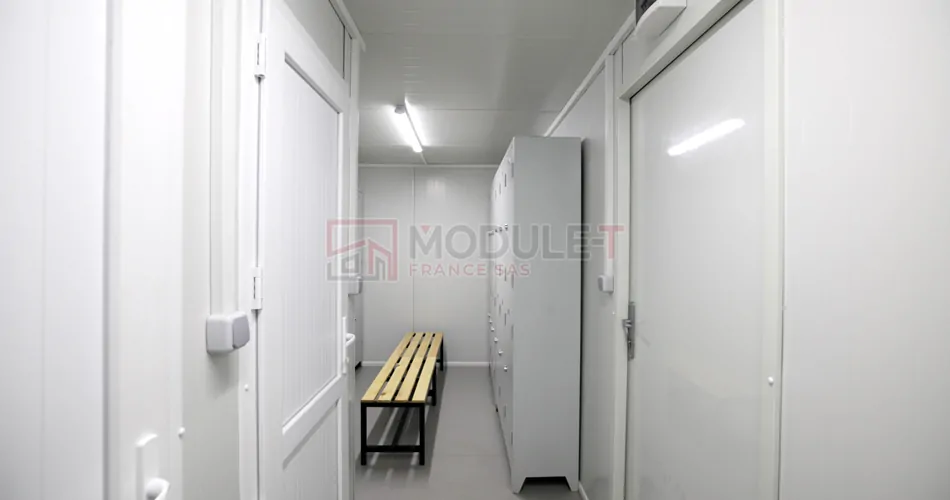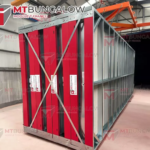In the construction industry, worker safety and well-being are top priorities. The design of construction site changing rooms is an often overlooked but essential aspect of ensuring a compliant and safe working environment. Construction site changing rooms must meet certain standards and regulations to ensure worker comfort and safety. In this article, we will explore the key regulations for site changing room design.
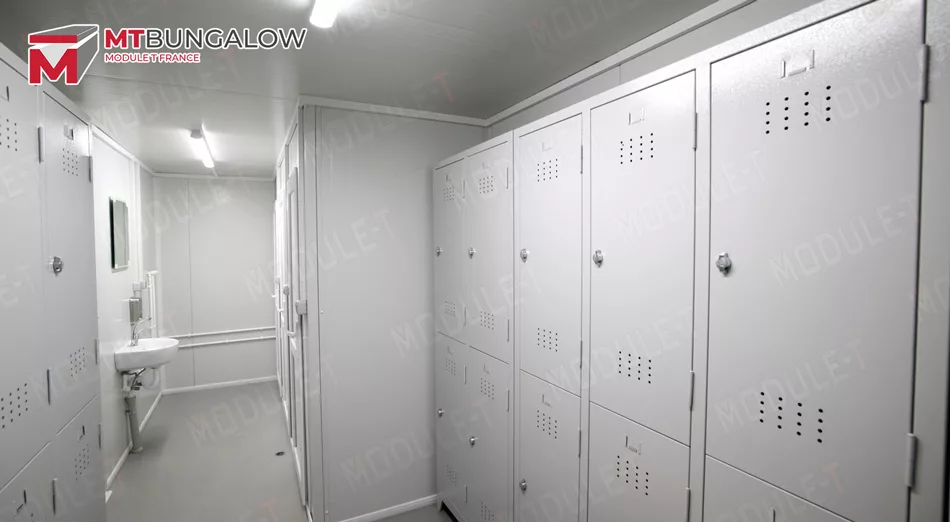
Why site changing room design is important
Construction site locker rooms aren't just a place to change; they play a crucial role in protecting worker health and safety. By providing a clean and secure space to store clothing and personal belongings, locker rooms help prevent accidents and improve employee morale. Additionally, a well-designed locker room can help ensure compliance with workplace health and safety regulations.
Comfort and hygiene
One of the most important aspects of changing room design is ensuring worker comfort and hygiene. This includes providing sufficient space for changing, as well as facilities for storing workwear and personal belongings. Changing rooms should be equipped with benches, individual lockers, and, if possible, showers to allow workers to freshen up after their day's work.
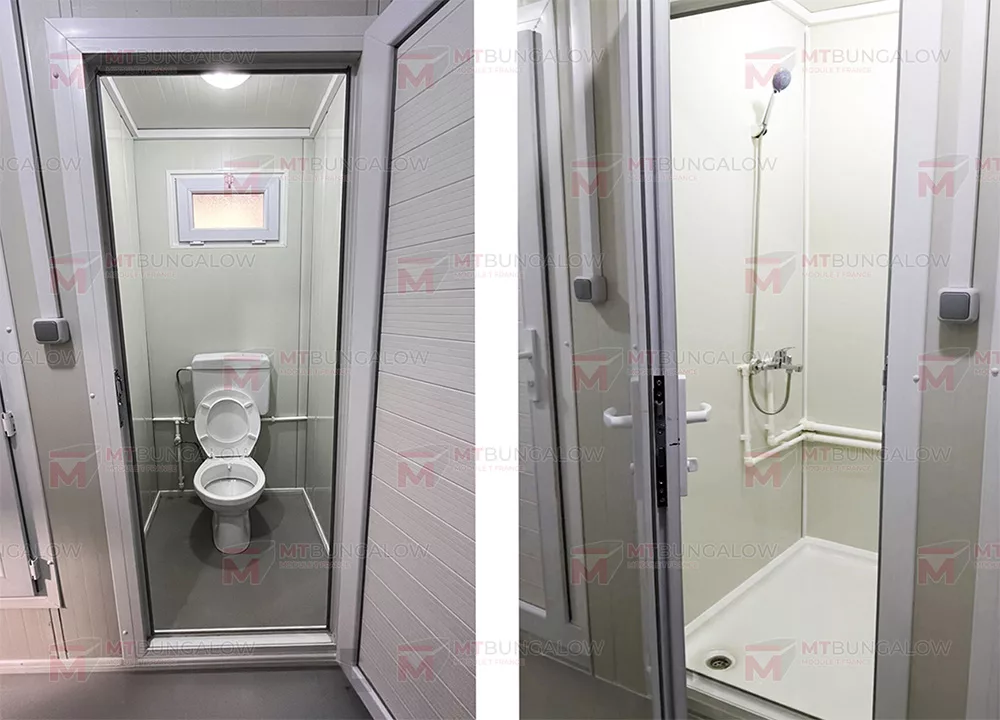
Main regulations for construction site changing rooms
Safety standards
Construction site changing rooms must meet certain safety standards to ensure worker protection. This includes specific requirements regarding the construction and layout of the space. For example, the materials used must be fire-resistant, and the changing rooms must be equipped with an adequate ventilation system to prevent the buildup of moisture and unpleasant odors.
Accessibility and size
It is essential that changing rooms are easily accessible to all workers. This means they must be located a reasonable distance from work areas and be spacious enough to accommodate the number of workers on the construction site. The size of the changing rooms must be appropriate for the number of users, with sufficient space for comfortable changing.
Separation of spaces
Another key requirement is the separation of spaces for different uses. Locker rooms should have separate areas for storing work clothes and personal belongings. Additionally, if possible, there should be a separation between men's and women's locker rooms to ensure the privacy and comfort of all workers.
Regular maintenance
THE construction site changing rooms must undergo regular maintenance to ensure they remain clean and in good condition. This includes regularly cleaning floors, benches, and lockers, as well as checking electrical and plumbing installations to prevent breakdowns or accidents. Rigorous maintenance helps extend the life of the facilities and ensures a healthy working environment.
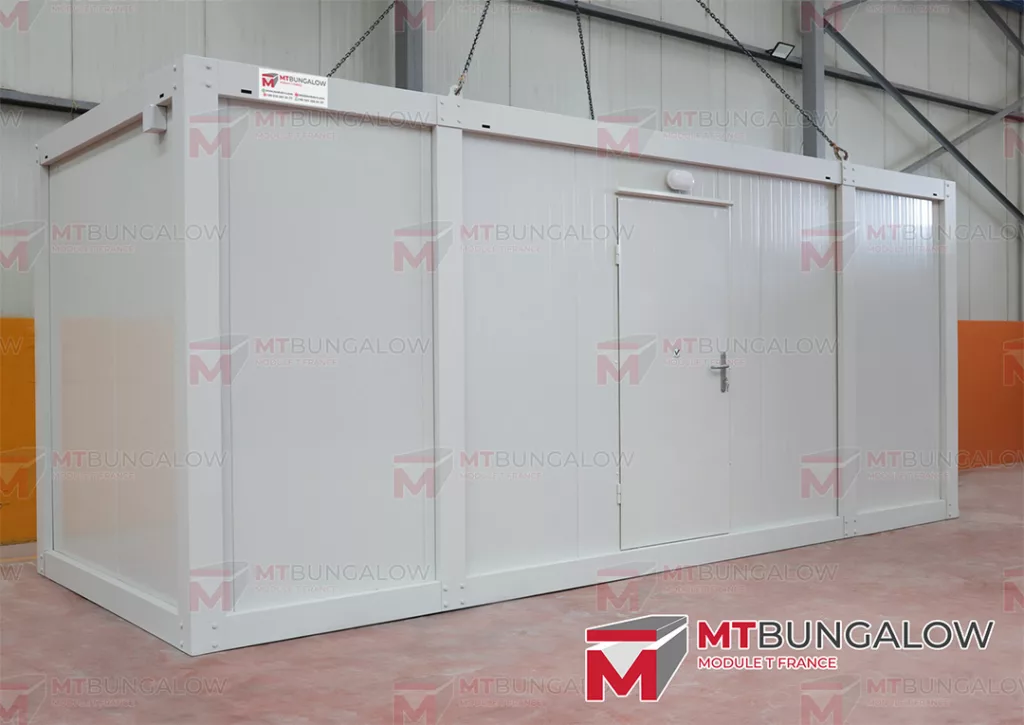
Tips for optimal locker room layout
Choosing the right materials
When designing locker rooms, it's important to choose durable and easy-to-maintain materials. Moisture-resistant materials, such as tile or vinyl flooring, are ideal for floors, while sturdy metal or plastic lockers offer a secure and durable storage solution.
Optimize space
Optimizing space is essential for creating functional and comfortable locker rooms. Consider using stackable lockers or wall-mounted shelves to maximize storage space without cluttering the room. Folding or retractable benches can also be a great option for saving space when the locker room is not in use.
Ensure good ventilation
Proper ventilation is crucial to maintaining a healthy environment in locker rooms. Ensure the ventilation system is powerful enough to eliminate moisture and unpleasant odors. In areas with particularly high humidity, dehumidifiers may be necessary to prevent mold and mildew problems.
Conclusion
Complying with construction site changing room regulations is essential to ensuring worker safety and well-being. Providing a clean, safe, and functional space not only contributes to legal compliance but also helps create a positive and productive work environment. Investing in well-designed changing rooms is an effective way to improve worker morale and reduce the risk of accidents on the construction site.
For more information on specific regulations applicable in your area, consult your local occupational health and safety authorities. They can provide additional guidance to ensure your site changing rooms meet all legal and safety requirements.

